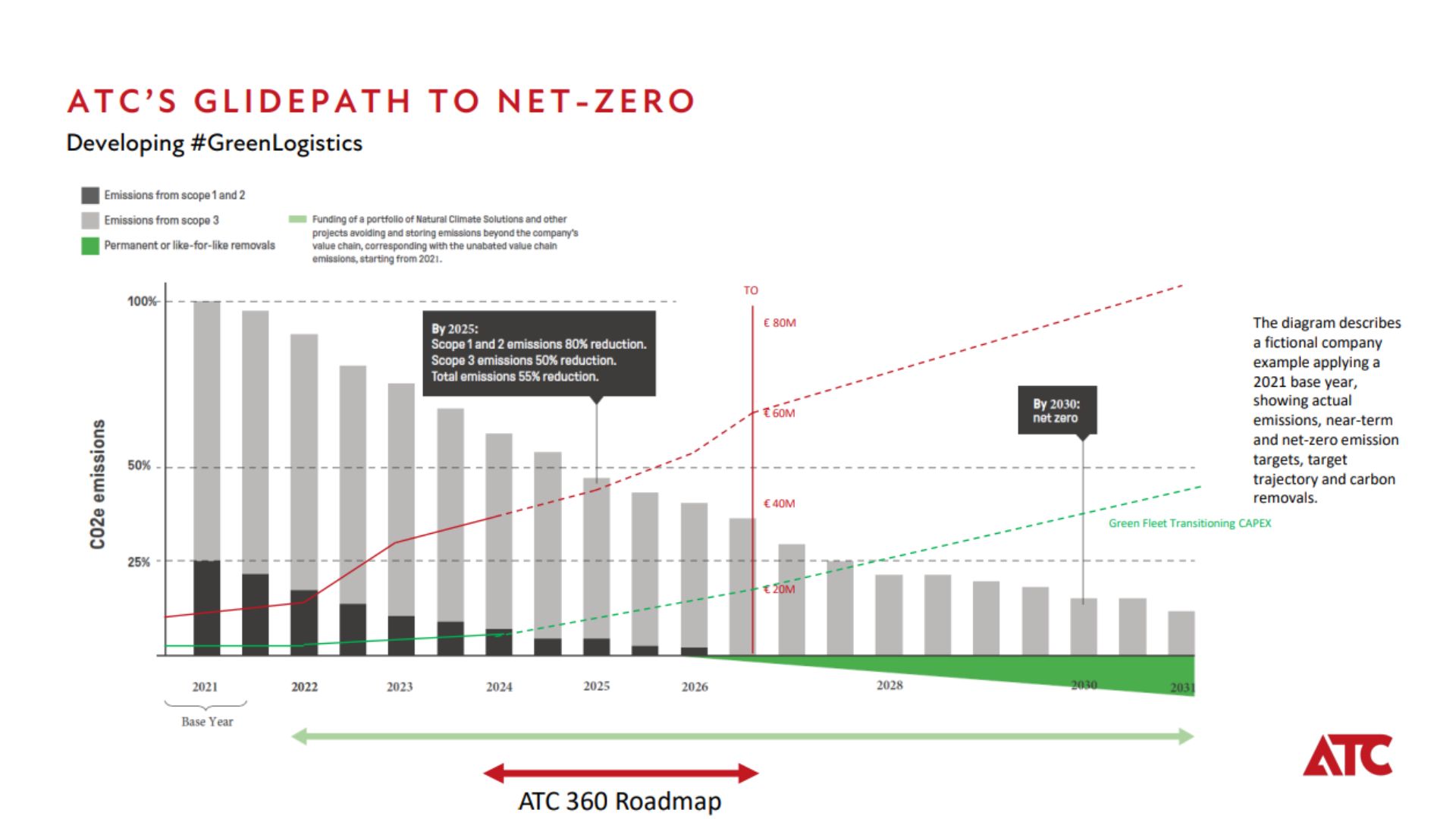
Reducing our impact
Mitigating climate change and transitioning away from fossil fuels are the primary environmental challenges for both the transportation sector and ATC. As one of the largest freight forwarders globally, our extensive experience, industry knowledge, and expansive operations uniquely position us to tackle the decarbonization challenges facing the transportation sector from both demand and supply perspectives. We are dedicated to playing a crucial role in driving the changes necessary to achieve net-zero emissions in our sector and within our own operations.
Our carbon footprint and targets
We have committed to reaching net-zero emissions by 2030, both in our own operations (scope 1 and 2) and across the value chain (scope 3). Our targets and accounting principles are developed in line with the Science Based Targets initiative (SBTi) framework, to ensure that our decarbonisation strategy is based on the latest climate science and is in line with the goals of the Paris Agreement.
As part of our sustainability strategy, we have set a near-term to reduce emissions under our direct control (scope 1 and 2) by 50% and indirect emissions (scope 3) by 95% in 2030 against our 2019 baseline. Our targets are validated by .
Find out more in our roadmap towards net-zero carbon emissions and in our latest sustainability report
Our roadmap toward Net-Zero emssion
To fulfill our ambitions, we have created a decarbonization roadmap to guide our actions in achieving carbon reduction targets in the coming years. This roadmap details the primary strategies we will employ, such as enhancing energy efficiency, eliminating fossil fuels across all transportation modes, generating renewable energy, and testing and implementing new technologies. We will collaborate closely with customers, subcontractors, and other stakeholders to enable decarbonization throughout our supply chain.

Supporting Our Customers Decarbonisation Journey
We are constantly developing our services to support our customers' decarbonisation journey. Our Green Logistics services are designed to help our customers gain visibility over carbon emissions in their sub-contracted transport and logistics and design decarbonisation strategies that fit their specific needs and CO2 reduction targets.
Ranging from CO2 reporting, strategic supply chain optimisation, sustainable warehousing to sustainable fuels and carbon offsetting, Green Logistics provides customers across the industry the opportunity to integrate greater sustainability into their operations without constraining their business growth.
Responsible Waste Management
As part of our commitment to reducing environmental impact, we strive to minimize waste and adopt a circular approach to waste and resource management. We systematically monitor and report on waste handling across multiple categories to ensure we are progressing towards our goal of diverting as much waste as possible from landfills. This involves optimizing operational processes and providing recycling facilities at our locations, while recognizing that waste segregation levels vary globally.
Our Waste Management Policy outlines our approach. This policy applies to all ACT entities and sites, aiming to prevent, reuse, and recycle as much waste as possible, thereby reducing the amount that ends up in landfills.
“We earn our customers’ trust by getting the job done to the highest standards of safety, security, and reliability — every time. We value our client relationships, and it is critical to us every one of our customers is satisfied with the service we provide.”
Keith Young
Managing Director, ATC


